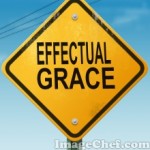 [This editorial is found in Peace and Truth, the magazine of the Sovereign Grace Union, written by John Brentnall – www.sgu.org.uk]
[This editorial is found in Peace and Truth, the magazine of the Sovereign Grace Union, written by John Brentnall – www.sgu.org.uk]
In an age when the fear of man threatens to ‘dumb down’ our testimony to God’s truth, it is well worth while to remind ourselves that the foundation doctrine of predestination is to be publicly preached, whether men hear or forbear. On this point let us heed the Word of God and the witness of some of His choicest servants.
1. God forbids us to tamper with His revealed will in the slightest way. “Ye shall not add unto the word which I command you, neither shall ye diminish aught from it.” (Deut 4.2) “If any man shall add unto these things, God shall add unto him the plagues that are written in this book. And if any man shall take away from the words of the book of this prophecy, God shall take away his part out of the book of life.” (Rev 22.18-19) As the doctrine of predestination forms part of His revealed will, it is included in this prohibition. Comments Zanchius: “An ambassador is to deliver the whole message with which he is charged. He is to omit no part of it, but must declare the mind of the sovereign he represents, fully and without reserve. . . Let the minister of Christ weigh this well.”
2. The Lord Jesus Christ and His apostles all preached predestination, declaring to their hearers “all the counsel of God.” (Luke 4.25-29; Acts 20.27; Rom 9-11; Eph 1; James 4; 1 Pet 1.18-21; Jude 4; 2 John 1-3.) “What shall we then do?” asks William Plumer. “If the doctrine so offends men, shall we give it up? Are we to make peace with human wickedness by observing a profound silence on this topic? Nay, let us rather imitate Christ, who often preached it.”
3. Faithful men in the past all refused to suppress this doctrine, however unpalatable it is to the carnal mind. In his day, Augustine rebuked those who passed over the doctrine of predestination in silence; and when he was charged with preaching it too freely, he replied by saying that where Scripture leads, there we must follow, adding: “Both the grace of free election and predestination and also wholesome admonitions and doctrines are to be preached.” Writes Luther: “In chapters nine, ten and eleven [of Romans] the apostle teaches about the eternal predestination of God. He tells how it originally comes about that a person will believe or not, will become rid of his sins or not. He does so in order that our becoming pious be taken entirely out of our own hands and placed into the hands of God. And indeed it is supremely necessary that this be done; for . . . if the matter depended on us, surely not a single person would be saved. Since, however. . . His predestination cannot fail and no one can defeat His purpose, our hope against sin remains.”
 Calvin says the same: those who try to overturn “that prime article of our faith . . . God’s eternal predestination . . . demonstrate their malice no less than their ignorance.” In view of his approaching death, he wrote: “I John Calvin, servant of the Word of God in the Church of Geneva . . . have no other hope or refuge than His predestination, on which my entire salvation is grounded.”
Calvin says the same: those who try to overturn “that prime article of our faith . . . God’s eternal predestination . . . demonstrate their malice no less than their ignorance.” In view of his approaching death, he wrote: “I John Calvin, servant of the Word of God in the Church of Geneva . . . have no other hope or refuge than His predestination, on which my entire salvation is grounded.”
4. All truth is interconnected; to preserve a full-orbed Biblical testimony, the doctrine of predestination is necessary. Comments Zanchius: “The whole circle of arts have a kind of mutual bond and connection, and by a sort of reciprocal relationship are held together and interwoven with each other. Much the same may be said of this important doctrine [predestination]; it is the bond which connects and keeps together the whole Christian system, which, without this, is like a system of sand, ever ready to fall to pieces. It is the cement which holds the fabric together; nay, it is the very soul which animates the whole frame. It is so blended and interwoven with the entire scheme of Gospel doctrine that when the former is excluded, the latter bleeds to death.”
5. The truth of predestination should be preached for the comfort of believers. “The doctrine of sovereign Predestination . . . should be publicly taught and preached in order that true believers may know themselves to be special objects of God’s love and mercy, and that they may be confirmed and strengthened in the assurance of their salvation . . . For the Christian this should be one of the most comforting doctrines in all the Scriptures.” (Loraine Boettner) If we would be a means of comfort to the people of God, we must assure them, by showing them marks of God’s grace, that He chose them in love before the foundation of the world, that Christ died for them in particular and that the Holy Spirit who regenerated them shall certainly convey them to heaven.
6. Lastly, this truth should be preached to encourage preachers themselves. Writes William Plumer: “That the doctrine of election is a ground of encouragement to pious preachers of the Gospel is certain. Thousands have told us so. It was so to Paul. ‘Then spake the Lord to Paul in the night by a vision, Be not afraid, but speak, and hold not thy peace; for I am with thee, and no man shall set on thee to hurt thee: FOR I HAVE MUCH PEOPLE IN THIS CITY.’ (Acts 18.9-10) The previous context shows that the Jews at Corinth ‘opposed themselves and blasphemed.’ In fact the work of founding a church there was just begun. Yet God says: ‘I have much people in this city.’ No man will say that God merely designed to inform Paul that Corinth was populous. He knew this already. The only fair logical meaning is that among the crowds of the ungodly in that city were many of God’s elect, whom He purposed by Paul’s ministry soon to bring to a saving knowledge of Christ. The doctrine of election, rightly understood, holds out the only ground of encouragement which we have for preaching the blessed Gospel. If God has no elect, we preach in vain.”
So then, this doctrine has been expressly revealed to us to be believed and preached. The excuse that people will reject it, or that it is unjust, or that it will cause controversy, is irrelevant. Since God has commanded us to preach it, we disobey Him at our peril. One thing is certain: it makes wholly for His glory, brings comfort and hope to His elect, and leaves unbelievers without excuse. In doing this, it perfectly fulfils the purpose for which He has revealed it.
 “Suppose the first American astronauts to walk on the moon had brought back, along with moon rocks, an oblong black box that appeared from the outside to have been crafted by machines. Suppose further that, when opened, the box contained the workings of a camera: it had parts that functioned like the lens, shutter, and other components of a camera. Obviously, such an object would excite enormous and justifiable curiosity about how it came to be. It is hard to imagine any skeptic’s gaining respect by maintaining that the principle of sufficient reason did not apply to such an object. Equally absurd would be efforts to explain the box in terms of chance, natural forces. The very nature of the object pointed to its having been made by an intelligent being. The human mind properly balks at the suggestion that a cameralike object was produced by chance, natural forces. But then how much more should we reject claims that something far more intricate, such as the human eye, resulted from anything less than an intelligent being.” Ronald Nash, Faith and Reason (Grand Rapids: Zondervan, 1994, p. 135.)
“Suppose the first American astronauts to walk on the moon had brought back, along with moon rocks, an oblong black box that appeared from the outside to have been crafted by machines. Suppose further that, when opened, the box contained the workings of a camera: it had parts that functioned like the lens, shutter, and other components of a camera. Obviously, such an object would excite enormous and justifiable curiosity about how it came to be. It is hard to imagine any skeptic’s gaining respect by maintaining that the principle of sufficient reason did not apply to such an object. Equally absurd would be efforts to explain the box in terms of chance, natural forces. The very nature of the object pointed to its having been made by an intelligent being. The human mind properly balks at the suggestion that a cameralike object was produced by chance, natural forces. But then how much more should we reject claims that something far more intricate, such as the human eye, resulted from anything less than an intelligent being.” Ronald Nash, Faith and Reason (Grand Rapids: Zondervan, 1994, p. 135.)

 ?”The only thing that a man can contribute to his own redemption is the sin from which he needs to be redeemed.” – William Temple
?”The only thing that a man can contribute to his own redemption is the sin from which he needs to be redeemed.” – William Temple [This editorial is found in Peace and Truth, the magazine of the Sovereign Grace Union, written by John Brentnall – www.sgu.org.uk]
[This editorial is found in Peace and Truth, the magazine of the Sovereign Grace Union, written by John Brentnall – www.sgu.org.uk] Calvin says the same: those who try to overturn “that prime article of our faith . . . God’s eternal predestination . . . demonstrate their malice no less than their ignorance.” In view of his approaching death, he wrote: “I John Calvin, servant of the Word of God in the Church of Geneva . . . have no other hope or refuge than His predestination, on which my entire salvation is grounded.”
Calvin says the same: those who try to overturn “that prime article of our faith . . . God’s eternal predestination . . . demonstrate their malice no less than their ignorance.” In view of his approaching death, he wrote: “I John Calvin, servant of the Word of God in the Church of Geneva . . . have no other hope or refuge than His predestination, on which my entire salvation is grounded.”